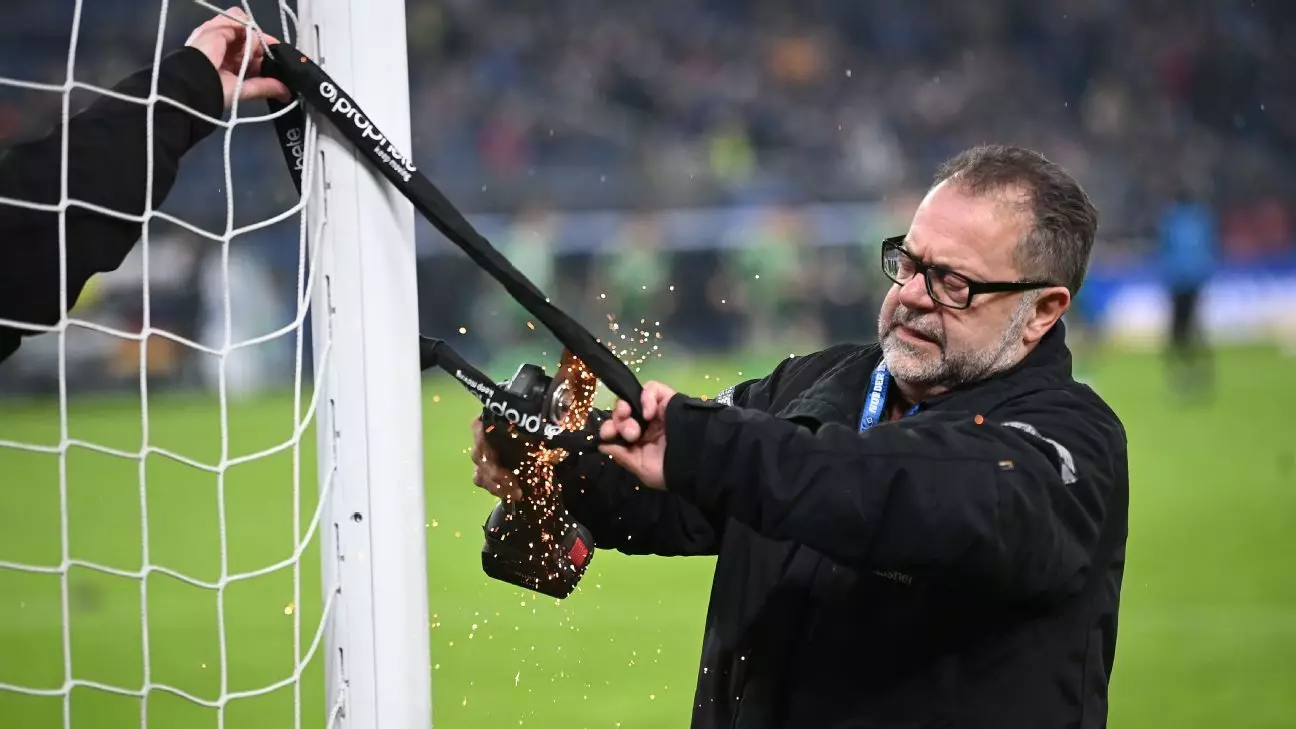The anti-investor protests in German soccer have taken a more disruptive turn. Fans have been protesting since last year against a plan to sell a stake in marketing revenues to a private equity investor. As the negotiations for the investment deal come closer to an agreement, fans have intensified their actions to voice their opposition.
During a second-division game between Hamburg SV and Hannover, the protests reached a new level of disruption. Supporters of Hamburg occupying a section of the stadium attached thick metal bicycle locks to one of the goals during half-time. In addition, objects were thrown onto the field, further interrupting the game. Staff had to use a power saw to remove the locks from the goalpost.
The disruptions continued when Hannover supporters displayed banners protesting against the prospective buyers, CVC and Blackstone, in the league’s investment deal. These banners included an unsettling image of Hannover chief executive Martin Kind’s face in crosshairs. Hannover players attempted to approach the supporters to engage with them, but the referee decided to take the players off the field due to safety concerns.
Martin Kind, a businessman deeply involved with Hannover, has been at the center of controversy in German soccer. He played a prominent role in the December vote regarding the investment talks, which passed with approval from 24 of the 36 clubs in the top two divisions. However, Kind has refused to disclose his own vote, despite the members’ club of Hannover urging him to vote against the proposal.
The protests extended beyond the second-division game, with incidents occurring during Bundesliga matches as well. In a game between Borussia Dortmund and Freiburg, Dortmund fans interrupted play for approximately 10 minutes by throwing tennis balls and foil-wrapped chocolate coins onto the field. Similar disruptions were witnessed in a game between Hertha Berlin and Hamburg, which experienced a delay of about half an hour, and a match between Mainz and Union Berlin that involved extensive stoppages.
These ongoing anti-investor protests by German soccer fans highlight the strong opposition towards the investment deal. Fans have become increasingly disruptive, resorting to actions such as attaching bicycle locks to the goals and displaying provocative banners. The disruptions have caused significant delays and interruptions to games, negatively impacting the overall experience for players and spectators alike.
The escalating anti-investor protests in German soccer have become a growing concern within the league. The fans’ determination to voice their opposition to the investment deal has resulted in disruptive actions during games. As negotiations continue, it remains to be seen how the league and clubs will address these protests and find a resolution that satisfies all parties involved.
